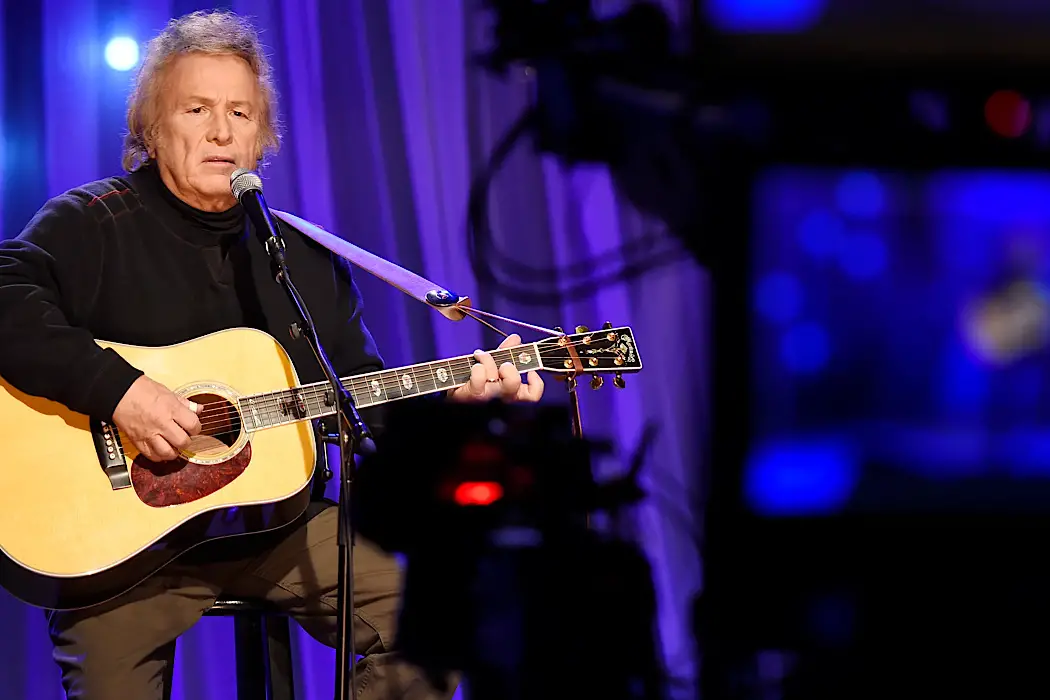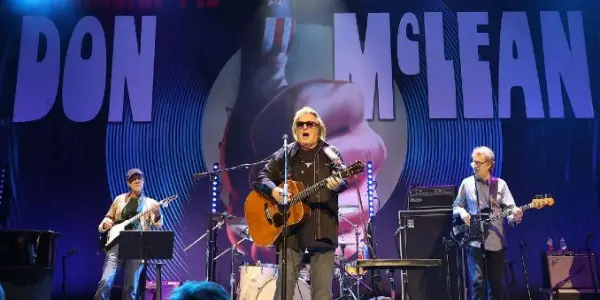The Day The Music Died: The Story of Don McLean’s American Pie: A Documentary For The Fans

Tynan loves nagging all his friends to watch classic movies…
The Day the Music Died: The Story of Don McLean’s American Pie is something I felt compelled to search out even as I remained fairly guarded about what it had to offer. This is hardly a minority opinion, but I heartily appreciate “American Pie.” I’m protective of it. It’s 8 and a half minutes of bewitching poetry played to a great rock and roll beat, and from the first time I heard it on the radio, it’s stayed with me.
Over time I became aware of the significance of “The Day The Music Died” even as I became increasingly more fascinated by McLean’s overt and sometimes seemingly esoteric references scattered throughout the lyrics. It felt like it was ripe with a kind of 20th-century mythology. It’s no doubt part of the reason audiences are still enamored with it. So watching The Day The Music Died, I was wary. I didn’t want them to bury this song too.
Don McLean’s Origins
It’s apropos if rather staid, to start with McLean’s own beginnings in New Rochelle, New York. He was white, middle class, and life was simpler in the ’50s. He had a belief in God, a belief in the church, and a belief in his government. It was during these very same days as a young boy with a paper route, he came to admire the likes of Bo Didley, Gene Vincent, and, of course, Buddy Holly.
In the first of many worthy trivia points, we learn “The Sacred Store” out of “American Pie” was a real place on the corner of Main Street and New Rochelle called The House of Music. This is where McLean’s musical education began as he bought records and procured his first guitar. The death of Holly and his compatriots on that icy Iowa night was second only to the loss of Mclean’s own father, leaving an indelible impact on his young life.
One could say he came of age during the ’60s following the social-minded folk traditions of Woody Guthrie and Pete Seeger. The latter actually gave him his first major break and became a kind of mentor. McLean was able to travel to the Newport Folk Festival in 1969 — rubbed shoulders with some of his heroes like The Everly Brothers — men who knew Buddy Holly firsthand. Their version of that tragic night rings with the banality of youth. Holly wanted to forgo the bus and take a plane in order to get some laundry done. As McLean puts it, He died thanks to some dirty laundry. It tears down any mythic illusions we might have.
The Birth of Pie and The Fans
Some of the most fascinating passages of the documentary are about the artistic muse enabling McLean to conceive this epic magnum opus. It’s the opening that sets up a story for him to delve into. The chorus is hot — looking to rock out more than it wants to be a ballad — and its this sped-up rhythm driving the song forward.

McLean readily suggests he pulled inspiration from “That’ll Be The Day” and the “Bye, Bye” refrain from “Bye Bye My Roseanna.” But the final piece of serendipity I was never cognizant of listening to the song is the impromptu piano playing of Paul Griffin. The man’s just feeling the song, and it allowed the recording to leap into a different stratosphere. This is how music magic is born.
The mythology around the song runs deep and wide going so far as to spill out into the audience. “American Pie” is so resonant to so many people, and it’s earned the effusive praise of fans over the years. The documentary highlights some of the fans including Garth Brooks, who got to welcome McLean on stage during a famed 1997 concert. Clark DeLeon is a man who caught the song during one of its first public unveilings when its creator hardly knew the words. Even Weird Al sings its praises since he famously turned it into a Star Wars parody.
However, there is one last figure who turns up. It’s a curious inclusion at first only for it to become increasingly evident with time. Because we also get introduced to Connie Valens. Her name reveals her connection. She’s, of course, the younger sister of Ritchie Valens, and therefore our link to the three musicians who were lost that fateful night. For her, McLean’s song was something to cherish because it helped to celebrate and keep the memory of her brother alive.
The Day The Music Died: Conclusion
The documentary makes me ruminate over an idea I’ve been considering of late. When you let your art out into the world, it’s often no longer yours. By popular demand, it starts to belong to the audience who take it on and imbue it with a myriad of thoughts and meanings. This is often the vast in-between where great art lives continuing to captivate us. Timeless, perplexing, and profound.
Don McLean can do what he wants because he created “American Pie,” but my own sensibilities begin to chafe at any thought of elucidating his thinking behind the song itself. I almost want to live in the tall tales and ambiguity of it all. Somehow there’s a kind of cumulative power in each person piecing it together of their own accord.
The final capstone we get feels like a poignant if modest resolution. It’s been over 60 years since Buddy Holly played his last show in Clear Lake, Iowa. Since he’s effectively kept his heroes alive, it only makes sense that McLean would perform on that very same stage in the presence of one of the few people with a personal connection with the dear departed. Although they’ve never met, they feel a bit like family. I’m sure the song has made family out of many.
While The Day The Music Died feels mostly twee compared to the rockin’, melancholy, labyrinthian depths of Don McLean’s original tune, I realize I can’t be too hard on it lest I forget what this song was about and who wrote it, to begin with. Just a boy with a paper route, who loved rock and roll and lost his heroes on one chilly evening in 1958. Even in the wake of tragedy, there’s something approachable and warm, even comforting, about his elegy, and that’s the key to its success long after my words have dried on the page.
Do you have any memories of Don McLean and American Pie? Let us know in the comment below!
The Day The Music Died: The Story of Don McLean’s American Pie is available on Paramount+
Watch The Day The Music Died: The Story of Don McLean’s American Pie
Does content like this matter to you?
Become a Member and support film journalism. Unlock access to all of Film Inquiry`s great articles. Join a community of like-minded readers who are passionate about cinema - get access to our private members Network, give back to independent filmmakers, and more.
Tynan loves nagging all his friends to watch classic movies with him. Follow his frequent musings at Film Inquiry and on his blog 4 Star Films. Soli Deo Gloria.













